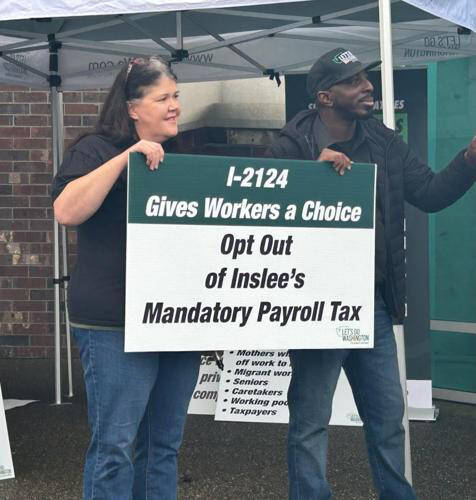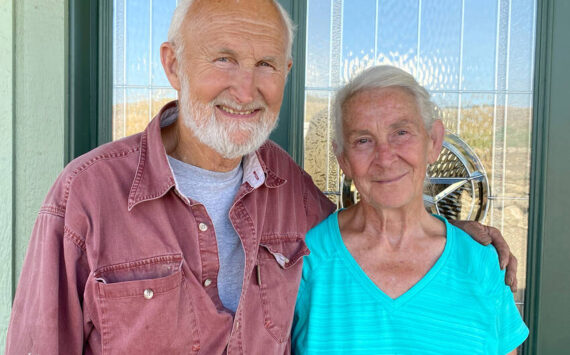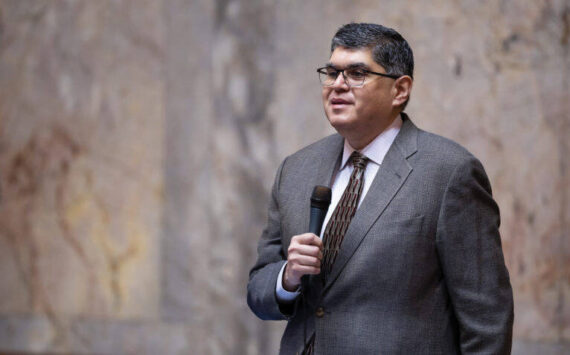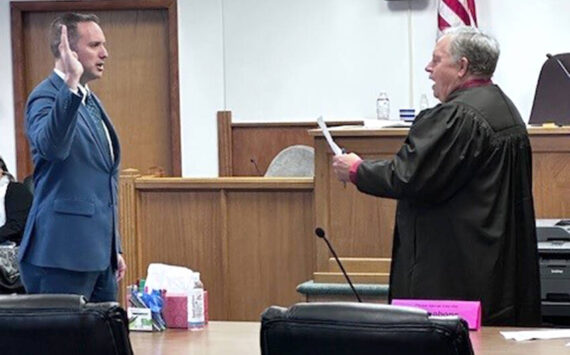By Carleen Johnson | The Center Square
(The Center Square) – Less than eight months from now, Washington state voters will – in addition to casting a ballot for president in November’s general election – decide the fate of three initiatives for repealing the state’s Climate Commitment Act and its carbon market, getting rid of the capital gains tax, and letting people opt out of the state’s long-term care program.
There were six initiatives in total before the Legislature this session. Majority party Democrats held public hearings and ultimately passed three initiatives to outline more rights for parents to oversee their kids’ schooling, ban the creation of income taxes at the state or local levels, and ease certain limits around police vehicle chases.
Democratic legislative leaders explained their reasoning at a media availability event last month.
“I think the three we have agreed to hear are written in such a way that it’s not clear really what they do, and the whole point is to have hearings so we can better understand those,” House Speaker Laurie Jinkins, D-Tacoma, said in response to being asked about holding public hearings on only half of the initiatives.
House Majority Leader Joe Fitzgibbon, D-Burien, said the three measures left up to voters could have significant consequences in terms of revenue for the state.
He singled out the initiative that would do away with the CCA.
“We need to be clear with the voters of Washington state, that if we’re not charging large polluters for the impact that their pollution is having on the state, then that revenue goes away, and we’re not going to be able to make the investments, whether that’s utility bill credits or investments in forest health and wildfire prevention, salmon habitat recovery, or traffic safety,” he explained.
“If the revenue goes away,” he continued, “we can’t continue those investments and we need to make sure that folks understand that.”
Senate Majority Leader Andy Billig, D-Seattle, backed up his colleague and then some.
“The investments that are funded by the Climate Commitment Act may go away, but so may other things,” he said.
The transportation budget could be adversely impacted, he noted.
“What’s going to happen in transportation is if the Climate Commitment Act goes away – is going to be a reprioritization,” Billig said.
Assuming repeal of the CCA happens, he said that doesn’t mean the transportation budget will be decimated.
“There are some things funded by CCA that will remain because they are so important,” Billig said.
“So, what’s going to happen is we’re going to have to reprioritize everything in transportation and that’s why everything that is already in the transportation budget, which is already a budget under duress, will be in question,” he added.
Rep. Jim Walsh, R-Aberdeen, spoke to The Center Square on Monday about the three initiatives that will be on the November ballot.
“You see it already from some of my colleagues in the Legislature that say, ‘Passing a repeal of the cap-and-trade tax scheme will somehow hurt road and bridge maintenance,’” he said. “That is patently false, it’s just false on its face.”
Walsh, who also serves as chair of the Washington State Republican Party, says lawmakers have only had that CCA revenue for one year, and projects have always been funded without that additional revenue.
“You’re hearing similar fear-mongering about the repeal of the capital gains income tax at the state level, that that will hurt schools and even daycares,” he said. “We expect that the campaigns will be spending tens of millions of dollars for each, and it could be even more with TV ads, radio ads, it will be Internet and digital ads, too.”
Supporters will conduct their own campaigns in support of the initiatives, Walsh acknowledged, adding that he takes some comfort in voters being smarter than initiative opponents give them credit for.
“They know that we’ve been running budgets that are surpluses in Olympia, and so this fear-mongering, it’s hollow, and it’s false,” he said. “I think people are aware, and people are alert, and they’re not going to fall for more fear-mongering.”
The general election is Nov. 5.







